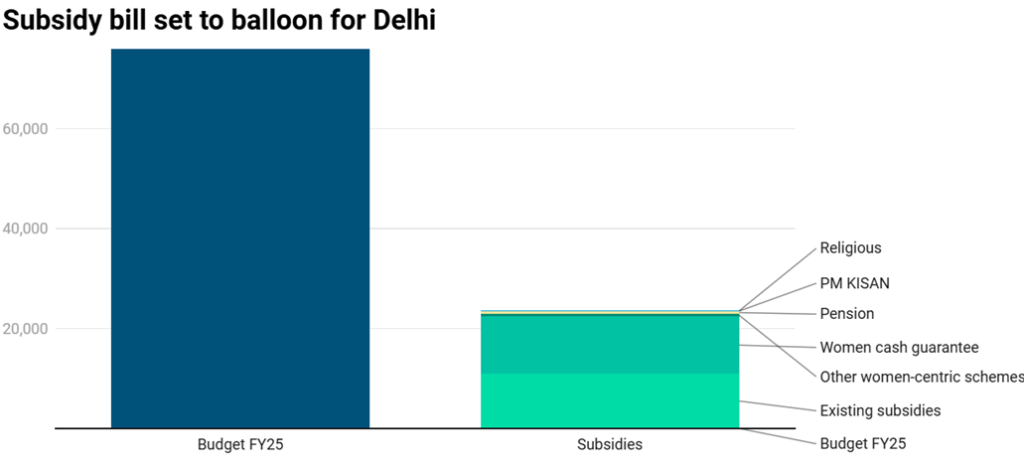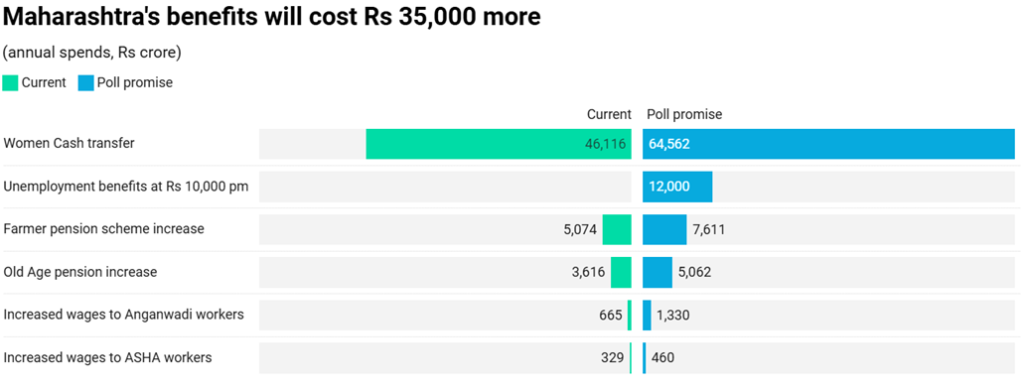Making strong observations on the practice of political parties announcing freebies ahead of elections, the Supreme Court has said people are “not willing to work” because of them and wondered whether a “class of parasites” was being created in the country.
SC Has Come Down Against Freebies
Why In News
- Making strong observations on the practice of political parties announcing freebies ahead of elections, the Supreme Court has said people are “not willing to work” because of them and wondered whether a “class of parasites” was being created in the country.
All You Need To Know
- The court was hearing a public interest litigation petition seeking shelter for the urban homeless, who, in search of work, migrate from rural parts of the country.
- “Unfortunately, because of these freebies, which just on the anvil when elections are declared, Ladki Bahin and some other schemes…the people are not willing to work. They are getting free rations, money without doing any work! I am telling you from personal experiences… because of these freebies, some states give free ration, so the people do not want to work,” Justice Gavai remarked.
- Under the Ladki Bahin scheme in Maharashtra, women in the age group of 21-65 with an annual family income of less than Rs 2.5 lakh get Rs 1,500 per month. Justice Gavai also referred to similar programmes run by ruling parties in other states. Agricultural workers in Maharashtra, Justice Gavai said, refused to work because of such freebies announced prior to elections.
- Senior advocate Prashant Bhushan, who appeared for the petitioners, said that shelters for the homeless in urban areas were in dilapidated condition, which, in turn, led to migrant workers avoiding going to them.
- Justice Gavai, however, shot down the argument saying: “Between a shelter home which is uninhabitable and sleeping on a road, what is more preferable?” Though giving freebies habituates people to not do any work, the right to shelter, prayed for in the plea, is a fundamental right, he said.
- Attorney General R Venkataramani, appearing for the Centre, told the court that the government was framing schemes to help alleviate urban poverty. The court directed the Centre to file an affidavit in six weeks, detailing the time required to finalise and implement the schemes, and what aspects they would cover.
- The counsel for Delhi Urban Shelter Improvement Board (DUSIB) told the court that night shelters were well-provided for and that officials of DUSIB did rounds of the city to convince the homeless to come to these shelters without much success. Bhushan, however, countered and said that the total capacity of shelter homes in Delhi was only for around 17,000 people, which was below the demand for such homes. Additionally, the DUSIB had also demolished nine such shelter homes, he alleged.
- In response, the DUSIB counsel said that six temporary shelter homes had been destroyed in 2023 Yamuna floods and had been abandoned since June that year.
- This is not the first time freebies have been a bone of contention in the top court. Earlier in 2022, a bench headed by then Chief Justice N V Ramana had referred petitions seeking a ban on freebies to a three-judge bench. The case is still pending.
Freebies Culture
- New BJP government in Delhi would need another Rs 13,000 crore to fund its welfare programmes, including the cash guarantee scheme for women, promised by the party in the run up to the polls.
- The state already funds Rs 11,000 crore worth of benefits from the Budget, which the BJP has promised to continue. Analysis indicates that in case the government does go ahead with the plan, it would have fewer resources for capex and may even slip into a revenue deficit for the first time.
- Delhi’s revenue surplus is set to decline to Rs 3,000 crore in FY25 from Rs 15,000 crore two years ago.
- Delhi is not the only one to bear such a large burden. Analysis shows that Maharashtra is expected to add over Rs 35,000 crore of extra spending as the government plans to fulfill promises made during the 2024 election.















